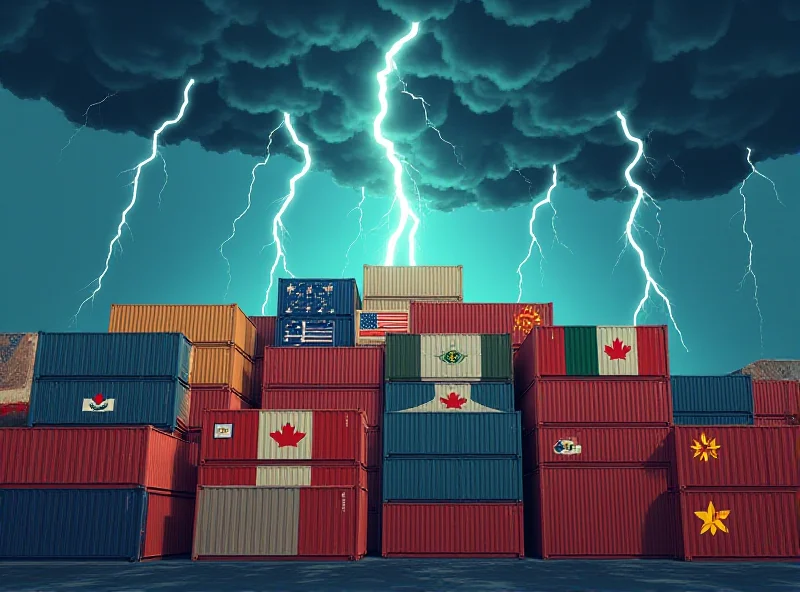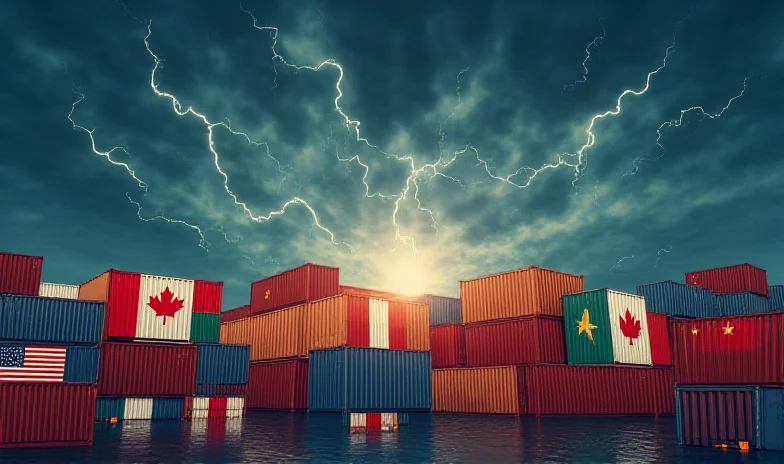The US economy is currently navigating a complex landscape of tariffs and trade tensions, impacting everything from energy prices to the availability of your favorite alcoholic beverages. Let's delve into the key issues and how they might affect you.
The Impact of Tariffs on Canadian Energy
Recently, tariffs have been imposed on Canadian energy, raising concerns about the potential ripple effects on the US economy. Experts are weighing in on how these tariffs might affect consumers and businesses alike. Will energy prices rise? Will businesses face increased costs? These are critical questions being asked.

One thing is certain: these tariffs add another layer of complexity to the already intricate energy market. Consumers may see higher prices at the pump or increased heating bills. Businesses, particularly those reliant on energy-intensive processes, could face tighter margins.
Alcohol and Retaliation: A Bitter Brew
The trade tensions aren't just limited to energy. The alcohol industry has also been caught in the crossfire. Brown-Forman CEO Lawson Whiting, the maker of Jack Daniel's, has strongly criticized Canadian provinces for removing US alcohol from store shelves in response to tariffs imposed by the previous administration. He described this retaliation as disproportionate and even "worse than a tariff."
“This is not just about Jack Daniel’s,” Whiting stated. “It's about the entire US alcohol industry and the potential for long-term damage to trade relations.” The Liquor Control Board of Ontario's decision alone impacts nearly a billion dollars annually, highlighting the significant economic stakes involved.
Market Volatility and Investment Strategies

The implementation of tariffs by the Trump administration on goods from Canada, Mexico, and China has sent shockwaves through the stock market. Major indexes, including the S&P 500, Nasdaq, and Dow Jones Industrial Average, experienced significant dips following the tariff announcements.
“The market hates uncertainty,” explained one financial analyst. “And these tariffs have created a lot of uncertainty.”
What should investors do in this volatile environment? Experts suggest diversifying portfolios, focusing on long-term growth strategies, and avoiding panic selling. It's a time for careful evaluation and strategic decision-making, rather than impulsive reactions.

The Chainsaw Artisan: A Unique Perspective
In a somewhat unrelated, yet intriguing story, Mariano "Tute" Di Tella, a mechanic from Buenos Aires, has found a niche making chainsaws for prominent figures like Milei and Musk. The buzz is that his next creation might be for Trump. While seemingly tangential, this highlights the interconnectedness of the global economy, where even a small artisan's work can be influenced by larger political and economic trends.
Ultimately, the ongoing trade disputes and tariff implementations present both challenges and opportunities for the US economy. Careful monitoring, strategic planning, and a willingness to adapt are essential for navigating this complex landscape.
